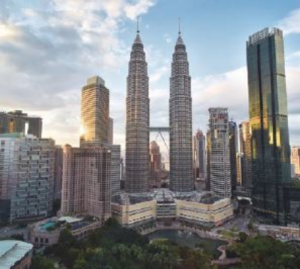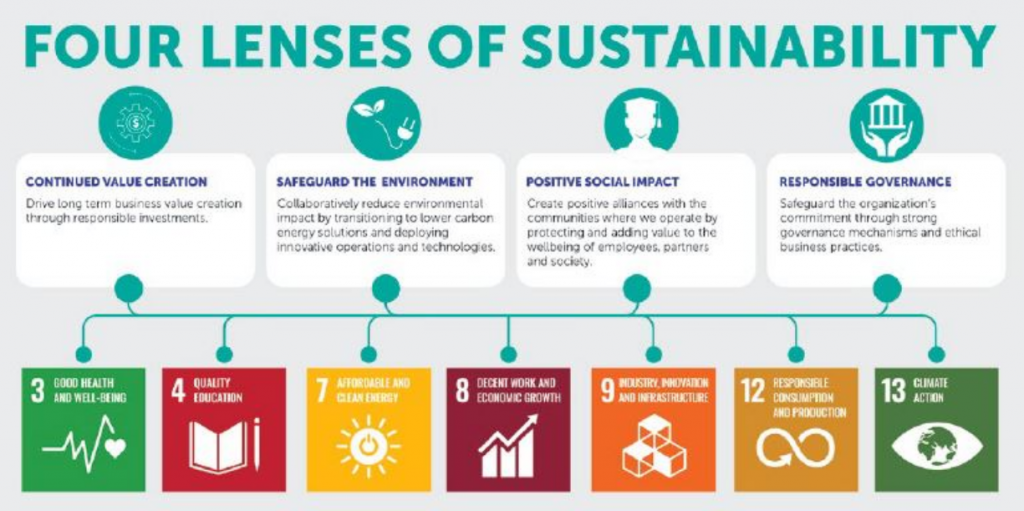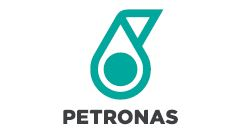
Since the second industrial revolution, the world has been dependent on the oil and gas industry to power economic growth. In the past decade, climate change concerns have accelerated the push for cleaner and sustainable energy solutions in a bid to reduce dependence on fossil fuel.
For PETRONAS, industry disruption—on the back of increasing energy demands, resource depletion and the push for sustainable solutions—is inevitable. It’s an ongoing challenge for all energy players, including PETRONAS, says Dzafri Sham Ahmad, Vice President of Group Health, Safety, Security and Environment, PETRONAS.
“In the energy business, change is becoming even more volatile today than ever before. Disruptive forces and emerging megatrends are pushing oil and gas companies to reinvent themselves and revisit their business strategies in order to remain relevant and sustainable.
“Climate change, air-quality concerns and government-driven initiatives are also fueling the rising demand for renewables. This spurs us to be more innovative and to invest in other sources of energy such as renewables for the security and sustainability of our supply.”
Dzafri says PETRONAS has been exploring the clean energy space since 2013 as part of the company’s long-term growth strategy. Today, this means the company is adopting commercial renewable energy technologies that use solar and wind for power.
The challenge in transitioning toward a low carbon future is ensuring a sufficient and affordable supply of energy to cater to fast-growing energy demands due to population growth and rapid urbanization. Energy companies such as PETRONAS find themselves walking a fine line when it comes to energy security, affordability and sustainability.
While fossil fuels remain core to the global energy mix, PETRONAS is redefining its energy offerings by pushing for the increased use of natural gas, which it sees as complementary to renewables. Its efforts to ensure a sustainable supply of natural gas is evident in its Canadian venture; PETRONAS and four global joint venture participants reached a final investment decision last year to build a LNG export facility in Kitimat in British Columbia, Canada.
The multibillion-dollar LNG Canada project, which will initially comprise two LNG liquefaction processing units, aims to produce a total of 14 million tons per annum, with the potential to expand to four units.
PETRONAS is among the top five LNG sellers in the world with positions in Australia, Egypt and Sarawak. The company is also a significant supplier to Japan, Korea, Taiwan and China, and it recently expanded its customer positions in Thailand and India. Investing in Canada provides the company a long, sustainable business for the future.

As for renewable energy, the company is currently focusing on solar and wind power and has established a new division called Gas & New Energy, which is aimed at growing a substantial business in delivering clean energy solutions to customers.
In line with its strategies in new energy, PETRONAS in April acquired Amplus Energy Solutions Pte Ltd (Amplus Solar), which is headquartered in India, to expand its renewables portfolio to include rooftop solar, ground-mounted solar and other distributed energy solutions such as storage.
In Malaysia, PETRONAS is collaborating with Universiti Teknologi MARA to jointly develop the On-Campus Energy Optimization and Solar Rooftop projects. The company plans to be a significant contributor to the Malaysian government’s renewable energy target of 6 GW by 2025.
“We are exploring new ideas and technologies that go beyond oil and gas as we witness the emergence of new disruptive business models, products and ideas. For PETRONAS, we view technology as a differentiator—the key to unlocking new opportunities and driving growth for our business,” says Dzafri.

Making Sustainability a Key Strategy
PETRONAS has been on its sustainability journey for nearly two decades now, says Dzafri, “but looking at future trends and rising expectations, we realize that we cannot afford to continue managing sustainability the same way anymore.”
Sustainability at PETRONAS today is driven by a clear agenda for a more effective orchestration of programs to immerse it into every aspect of the company’s business strategy and work processes, he adds.
When it comes to community development, he says PETRONAS is consistent in upholding its responsibility in providing sustainable value to enrich the lives of people in the areas it operates in, focusing on three pillars: education, community wellbeing and development, and the environment. With the launch of Yayasan PETRONAS, the company’s philanthropic arm, in March, PETRONAS continues to extend its four-decade involvement with communities and the environment in a more strategic manner and direction.

In education, it supports several initiatives in areas where the firm operates. In Malaysia, PETRONAS has been sponsoring more than 36,000 students to pursue tertiary studies in Malaysia and abroad, investing more than US$790,000 to date. In South Sudan, PETRONAS has sponsored 80 South Sudanese students since the year 2000 to continue their studies, of which 23 attended Universiti Teknologi PETRONAS in Malaysia, investing US$4 million in the program so far. Efforts are also in place to train South Sudanese geologists, operators and technicians.
“Through these initiatives, we are helping them to become experts and leaders, so that they can one day rebuild what was lost during war,” says Dzafri.
He points out that the education initiatives are geared toward creating access to education and providing the infrastructure to support these programs. In East Malaysia, the company has built hostels for children living in remote areas of Sabah and Sarawak so they can live near their schools. Halfway around the world, in Iraq, PETRONAS has over the past decade established several long-term educational projects, including refurbishing schools in Al-Rifa’I a district located in the south of Baghdad to support 900 students.
Its community projects include creating access to clean water to rural communities, such as the villages around Pitas and Kota Marudu in Sabah where clean water is supplied thanks to the gravity-fed, water system project.
In South Sudan, PETRONAS’s Water for Life initiative provides portable water supply through wells and boreholes—delivering access to clean water to more than 40,000 local communities—with the first phase completed in 2018. Using a solarpowered motorized system, the company built six water wells in five locations, producing 162,000 liters with 72 public taps. This initiative is in collaboration with a local nongovernmental organization, Nile Hope, and the Ministry of Petroleum.
The company’s flagship environmental project is the conservation of a 27,599-hectare virgin rainforest in the Imbak Canyon Conservation Area in Sabah. To promote environmental conservation and research in biodiversity, the company constructed the Imbak Canyon Studies Centre, a state-of-the-art facility. PETRONAS has also been actively promoting the conservation of mangrove areas in Malaysia, particularly in the state of Terengganu.
